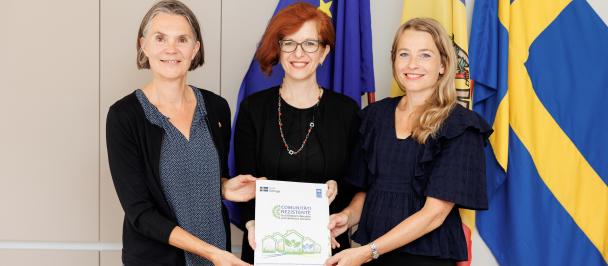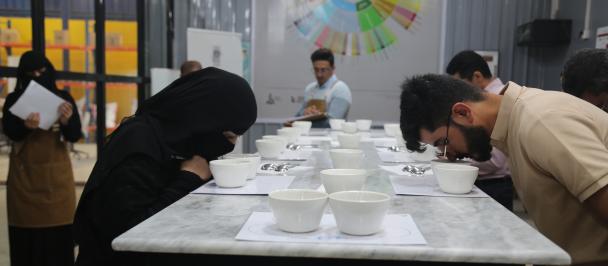UNDP/ACDP Offers Technical Training to Farmer Cooperatives in Six Counties
July 15, 2024

Women tractor operators are also part of the technical training.
The United Nations Development Programme (UNDP) has conducted a five-day technical training on the use of aggro-farming tools, equipment and machinery under the Accelerated Community Development Program (ACDP) for six farmer cooperatives simultaneously in Gbarpolu and Bong counties.
The six cooperatives came from targeted communities in Bong, Lofa, Rivercess, Nimba, Bomi, and Gbarpolu under the ACDP Program.
In his opening remarks at the training in Gbarpolu County, the UNDP/ACDP Project Assistant Odaphus Dahn emphasized the significance of addressing poverty and inequality in Liberia, particularly between rural and urban populations.
Dahn explained that the training covered the use, maintenance, and repair of tractor implements, including rice trans-planters, power tillers, and combined harvesters, among others.
He urged participants to make maximum use of every given opportunity, encouraging them to take this cooperative business seriously, use the equipment wisely, and work together as a team to develop a good working relationship. “Take advantage of the opportunity you have to improve food production and reduce dependency on imported goods. We are here for serious business and not to joke" Dahn concluded.
Also speaking, Gbarpolu County Agriculture Coordinator Madam Weedor Cegbe, expressed gratitude to UNDP for the initiative, describing it as a blessing and empowerment for farmers.
Madam Cegbe highlighted the challenges faced in farming activities, including high costs due to the lack of equipment, manpower, and financial resources.
She encouraged beneficiaries to focus on learning and use their newfound knowledge to benefit their families, counties, and Liberia as a whole in the area of agriculture.
Similarly in Bong County, the UNDP/ACDP Monitoring and Evaluation Analyst Yousouf Sanoe said the Accelerated Community Development Program is supporting rural farmer cooperatives in the use of these machines to enable them to move from subsistence farming to mechanized farming through capacity-building and empowerment.
Sanoe mentioned that a mechanized agriculture program that involves the use of machinery and equipment, ranging from simple and basic hand tools to more sophisticated, motorized equipment will help boost food production.
In December 2023, Vishnu Trading Inc. was contracted by the ACDP to provide farming equipment and training for beneficiaries in the six targeted counties.
The head of the Central Agricultural Research Institute on Mechanization and Irrigation Engineering, and a training Consultant for Vishnuy Company reminded farmers to always observe safety measures when operating the equipment and machines.
The training held 8-12 July 2024, brought together 56 participants from 14 ACDP cooperatives in the six targeted counties.
Beneficiaries attending the training lauded UNDP and the facilitator for an opportunity to gain knowledge that will help them boost their farming activities.
Esther Mulbah one of the tractor operators said the knowledge acquired is an added value to her life, family, and Community, and will increase her confidence to apply to any company looking for a heavy-duty driver.
Ms. Mulbah offered to train other women within the Cooperative, promising to make UNDP proud by utilizing the knowledge.
The Ministry of Agriculture (MOA) assigned County Agriculture Coordinators and Extension Officers to represent each county at the training, fostering collaboration between UNDP and MOA in ACDP implementation and ensuring the sustainability of the interventions.
The training spans over 20 days, with theory lessons taking up to five days while the practical aspects, including field demonstrations in farmland preparation, are conducted for 15 days.
The ACDP, is an initiative of the Liberian Government implemented by UNDP, focusing on various core areas including agriculture and food security, infrastructure, affordable and clean energy, health, education, and water and sanitation.
It is aimed at implementing the government’s agenda and meeting the SDGs targets of reducing inequality between urban and rural areas, improving access to basic infrastructure, and creating job opportunities.

 Locations
Locations


